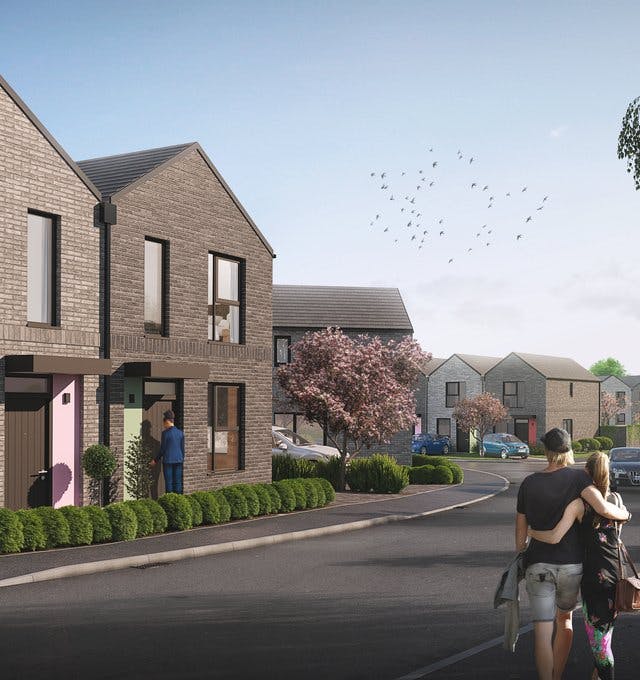In 2019, the government introduced a legally binding target to reduce greenhouse gas emissions to net zero by 2050. According to the UK Green Building Council, the built environment contributes about 40% of the UK’s total carbon emissions. Housing providers own and manage around 17% of the UK’s housing stock so the message is clear: our sector has a key role to play in combatting climate change.
We’re taking this role seriously and we’ve already been busy taking steps to reach the 2050 target. In the last year we’ve launched internal initiatives to raise awareness of the issues around climate change. We’ve introduced Climate Champions who will support us to develop a low-carbon culture across our workplace. And we’ve started to review our environmental, social and governance (ESG) reporting process, initiating benchmarking and research into appropriate and deliverable targets to reduce our impact as an organisation.
We’ve also undertaken an evaluation of our existing homes to better understand the financial obligations and roadmap to get our homes to EPC level C by 2030 and net-zero carbon by 2050. We’re looking at how we build homes to ensure we deliver them as net-zero carbon ready (to avoid future retrofit obligations) and partnering with our peers to achieve carbon neutrality.
Announcing the Greener Futures Partnership
It’s with our partners that we can really make a difference, so we’ve teamed up with four other housing providers – Hyde Group, Anchor Hanover, Home Group and Sanctuary Group – to improve the energy efficiency of 300,000 homes for more than 600,000 customers. At the same time, we’re going to create new standards for sustainability across the sector. This will all be done under the guise of the Greener Futures Partnership, which we launched in April 2020. We’re confident this collaborative approach will make a real difference.
Adopting the ESG sustainability reporting standard
We've given our full support to a Sustainability Reporting Standard for Social Housing that has been launched by the ESG Social Housing Working Group.
The Standard aims to encourage more consistency when it comes to reporting against environmental, social and governance issues. We’re proud to be early adopters of the Standard, which we will report against on an annual basis.
The road ahead
We’ve set key milestones that will impact the way we do things in the future. This includes reducing the amount of carbon we produce by retrofitting our existing homes in accordance with the Government’s statutory timetable; switching our vehicles to electric and providing opportunities for electric vehicle charging for colleagues and customers; making carbon reductions in the way we run our business. When it comes to new homes, we’re also setting specific targets for improving fabric efficiency and insulation as well as using appropriate renewable and low carbon energy. Our Abri Standard will complement the Government’s Future Homes Standard which expects new homes to produce 75% lower carbon emissions compared to current Building Regulations levels by 2025.

